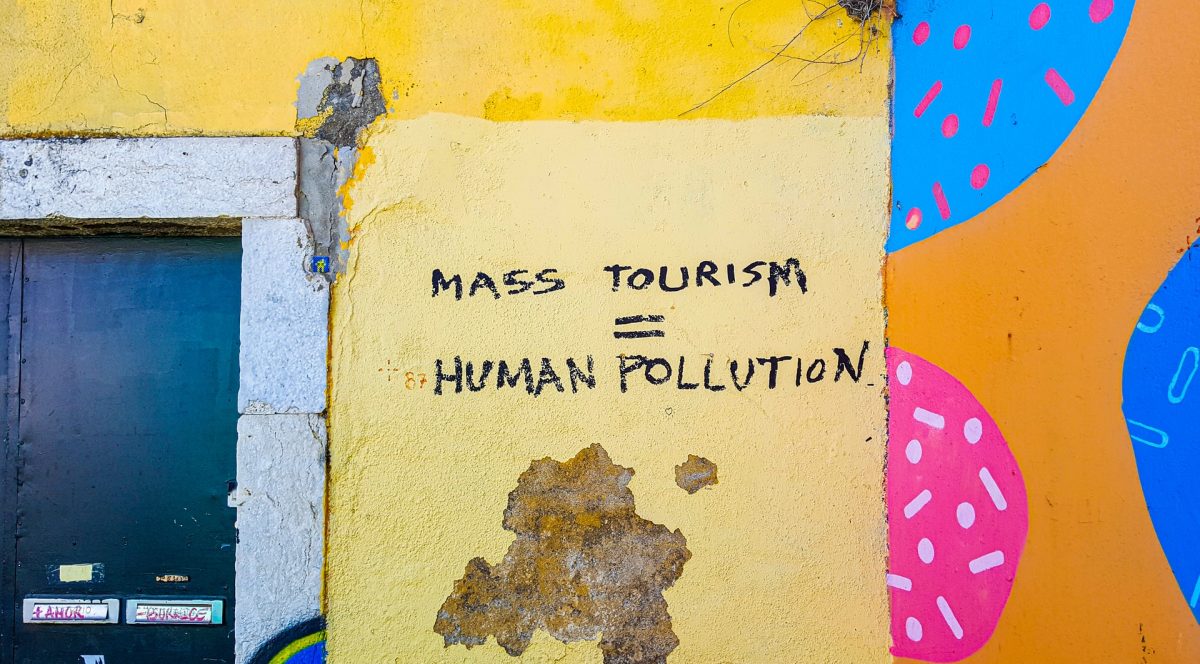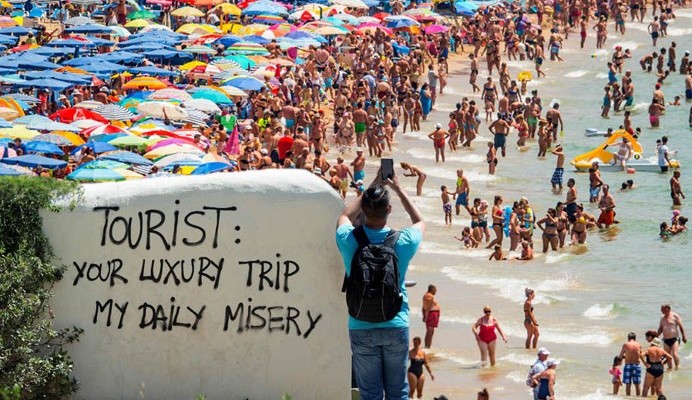Global tourism has no doubt slowed down due to the pandemic. Although global economies have experienced hardships because of it, there has been an increased demand to rethink how the sector can start up once more. Tourists and the tourism industry want to get back on their feet, but there must be changes rather than going back to normal.
As the world is slowly opening back up to tourism again and people are getting vaccinated, global tourism is on the precipice of rebooting. After the worldwide shutdown, people and industries, including tourism, realized just how much travel harms the environment. When cars and planes stopped, skies cleared, and the air seemed cleaner.
The pandemic has redefined normal, and if there was any good to happen in the tourism industry from COVID-19, it’s how the pandemic could give sustainable travel a boost.
Traveling and Sustainability Before the Pandemic
Before the pandemic, whoever had a passport, plane ticket or driver’s license could freely travel to almost any part of the world. For most travelers, the idea of tourism was more about sightseeing and experiences and not so much about sustainability while traveling.
Tourism drastically affects the environment. When not done sustainably, tourism contributes to loss of diversity, decreased freshwater sources, increased pollution and so much more. In fact, global tourism directly impacts the rate of climate change.
Overtourism was a significant challenge pre-pandemic. It’s something that negatively affected many tourist locations. Streets become overcrowded, and often, residents would get overwhelmed by the vast amount of people. Of course, tourism greatly benefits the local economies of tourist destinations. Still, it negatively impacts the lives of locals, and as a tourist, excessive crowds may hinder your dream location.
Sustainable tourism has been around for many years. It’s the idea that when you travel, you do so in a way that leaves as small as a carbon footprint as possible. Even before the pandemic, there was a push for sustainability in travel to protect each destination’s assets, environment, culture and community to provide those experiences for generations to come.
The travel industry has suffered due to COVID-19, with a loss in revenue and jobs throughout the world. Airlines and cruise ships had to halt their trips, people who planned trips for 2020 had to cancel, but tourism destinations could breathe again due to a lack of tourism.

Photo by Mark de Jong on Unsplash
A Cleaner Environment
When the shutdown of travel occurred, the environment began to benefit almost immediately. Pollution was low in most tourist areas, and people stayed home or traveled within their own countries. Plus, water pollution declined as well, which provided more fresh, potable water to countries.
Those who still traveled during the pandemic did so in a more sustainable way. Instead of taking planes or cruise ships to their destinations, they drove or even took a staycation. Whether travelers knew it or not, they improved their carbon footprints. Also, people wanted to avoid crowds for the sake of social distancing and their health, so highly-toured areas were a no-go.
Places like London, Los Angeles, Wuhan, New Delhi and Mumbai saw significant drops in air pollution and experienced an overall cleaner environment. With fewer people crowding popular destinations, diversity could flourish once more as well.

Photo by Diego Jimenez on Unsplash
Reevaluating Travel
Of course, the tourism industry will have to recover. People need to get their jobs back, and even more people want to be able to explore the world once more when it’s safe enough to be around millions of people again.
The United Nations World Tourism Organization (UNWTO) released an article explaining how people must reevaluate travel after the pandemic to have a safe and effective reboot of the travel industry. The pandemic has made travelers and the industry rethink sustainability.
COVID-19 highlighted how fragile the environment is at this point. Years of carelessness when it comes to travel depleted natural resources and took a toll on highly-visited locations. Now, there’s an opportunity to launch travel in a more eco-friendly and sustainable way.
Every part of the tourism industry must work together to meet this goal. The industry has already seen what sustainable travel can look like. Now, they have to raise awareness to tourists about the impacts of travel and the importance of sustainable travel.
How You Can Travel Sustainably
Sustainable travel is more important now than ever before. Here are some tips on how you can bring sustainability into your travel life:
- Bring a reusable water bottle. Instead of purchasing prepackaged water, which is likely teeming with microplastics, get yourself a water bottle that can filter through water. You’ll cut down on water waste and plastic pollution.
- Avoid traveling to destinations that have experienced overtourism. By going to a less-known place, you can positively impact their local economy! You can also visit someplace close to home and experience what your own community has to offer.
- Consider how you travel. If you can drive there, walk around your destination or even rent a bicycle for a day, do that instead of paying for a flight.
- Choose an ethical accommodation. Typically, hotel chains hurt the environment by throwing out partially-used toiletries and blasting the air conditioning. Find a sustainable hotel or find a hostel or guest house.
- Pack light when possible. The lighter your luggage, the less fuel needed to get it there.
- Buy local items to help the economy. Those tourist souvenir shops drag in a lot of people. Instead, purchase locally-made items so you can put money directly back into the economy.
There are plenty of other ways to travel sustainably, but these tips are an excellent place to start.
Thank the Pandemic for Sustainable Travel
While many hardships have come from the pandemic, the silver lining lies within sustainable travel. Everyone must be involved in order to change the ways of travel to be more sustainable. There is a long road ahead, but the journey to sustainability has just begun.
Lead image: Photo by Brett Zeck on Unsplash



